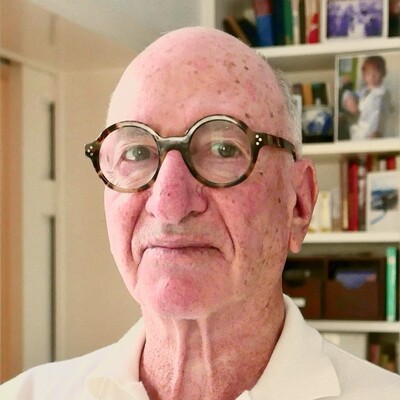Romania’s Anti-Corruption Progress
The battle against authoritarianism engulfs much of Eastern and Central Europe. Romania may emerge as a beacon of democratic hope.
November 21, 2019
While quite a few countries in Central and Eastern Europe give some reason for worry, Romania is potentially turning into a good news story.
The country is moving, albeit gradually, away from its long legacy of corrupt government towards being a more transparent democracy where the rule of law is applied more honestly.
The outcome of Romania’s presidential election, which was held on November 24, 2019 and saw the law-and-order orientated incumbent FN/LN victorious, is likely to push the country further in this direction.
“I believe we may have turned the corner. There is a broad-based change taking place as political corruption becomes increasing exposed,” says an anti-corruption friend in Bucharest, who has been campaigning tirelessly for years and is acutely aware that current gains are fragile.
The grinding battle against authoritarianism engulfs much of Eastern and Central Europe and the modest progress being made in Romania could encourage opponents of the corrupt regimes in the region. But nobody underestimates the height of the mountains that need to be climbed.
Public frustrations
Another friend in the anti-corruption camp, from Prague, stresses that across the region people believed that the end of communism would enable them to reach living standards like those seen in the West.
“There was a lot of progress towards this goal in the 1990s, but then corruption spread. As oligarchs took increasing control of the economy and citizens increasingly understood that they would never catch-up with Western living standards.”
The frustration was exploited by populist politicians – leaders who, once they held power, patently failed to deliver on their promises of higher living standards.
As a result, public street protests have become quite common. One concrete outcome of this dissatisfaction is that some opposition politicians have won municipal elections – for example, in the Czech Republic and Hungary. In Slovakia, an anti-corruption politician even won the presidency.
Nevertheless, the grip on power of the authoritarian kleptocratic regimes in many countries in Central and Eastern Europe remains formidable. To preserve their own rule and that of their cronies, national political leaders and their oligarch associates are pursuing policies of polarization – pitting one group against another.
To that end, they capture media to pummel opponents and secretly fund civil society groups to infiltrate pro-democracy organizations. Fake non-governmental organizations are being created to confuse the public, while the ruling politicians, inspired by president Trump, daily charge media critics with perpetrating “fake news.”
So what went right in Romania?
A crucial positive change, asserts my Romanian colleague, relates to the judicial system. In his country, and numerous others, there has long been what he calls “selective justice.”
This is a system where investigations and prosecutions are manipulated in ways that have enabled corrupt government leaders and their cronies to operate as if they are above the law, while their opponents are targeted. Sometimes, a mid-level corrupt official is also hauled into court to convey the false impression that prosecutions are not politically driven.
Some Romanian anti-corruption activists are happily surprised that Laura Codruta Kovesi, the former head of the anti-corruption agency and who was seen as being part of the system, has indeed been appointed now as the first chief of the European Public Prosecutor’s Office. That is a vote of confidence in the relevance of Romania’s reformist camp.
“The public had become fed-up with the system and it brought pressures on judges that produced good results, “ says my friend in Bucharest. He adds, “Judges have started to feel that they are accountable to society and that they have been manipulated for too long by political leaders.”
Are judicial reform and honesty sufficient? No, say my friends in the region.
Transnational networks
As my colleague in Prague stressed, “We have seen the ‘oligarchization’ of our economies and cartel operations among entrepreneurs that provide large-scale financial support to dominant political parties and their leaders, while consistently strengthening their control over trade and investment.”
In tandem with these developments, it is increasingly evident that from the Baltics to the Balkans, large-scale money laundering networks have been established throughout the CEE countries. Powerful Russian interests are seen as being engaged in such networks, as well as an array of kleptocrats and oligarchs of other nationalities.
Cross-border cooperation becomes ever more important
Anti-corruption activists increasingly see their challenges not only in terms of striving for political and judicial reforms in their own countries, but in finding powerful allies beyond their borders.
Interestingly, they are skeptical that the European Public Prosecutor’s Office will be sufficiently forceful and independent to make much of a difference. From experience, they know that a few individual prosecutions of known criminals will not suffice.
To defeat what has become systemic capture of national economies by kleptocrats, their political cronies, powerful businessmen and foreign financial and political forces, notably from Russia, will require considerably more effort.
Self-defeatist EU rules?
The ability of individual EU member countries to use their veto powers is also seen as a deplorable, but effective way for corrupt regimes to prevent the EU Commission from overly rigorous monitoring of the multi-billion-euro EU budget allocations to the corrupt governments in some member nations.
Conclusion
Romania may emerge more clearly as a beacon of democratic hope, with an increasingly independent-minded judiciary and with increasing numbers of cases of high-level corruption being exposed.
But Romania, like many of its neighboring countries, urgently needs far greater support across the board, from the judiciary to many aspects of commerce and finance, from the EU Commission and the most powerful West European governments.
Takeaways
The battle against authoritarianism engulfs much of Eastern and Central Europe. Nobody underestimates the height of the mountains that need to be climbed.
From the Baltics to the Balkans, large-scale money laundering networks have been established throughout the CEE countries.
Individual EU members’ veto powers are an effective way for corrupt regimes to prevent the EU Commission from monitoring how EU funds are spent.
While quite a few countries in Central and Eastern Europe give some reason for worry, Romania is potentially turning into a good news story.
Anti-corruption activists increasingly strive not only for reforms in their own countries, but finding powerful allies beyond their borders.
Laura Codruta Kovesi has been appointed as the first chief of the European Public Prosecutor’s Office. That is a vote of confidence in Romania’s reformist camp.

